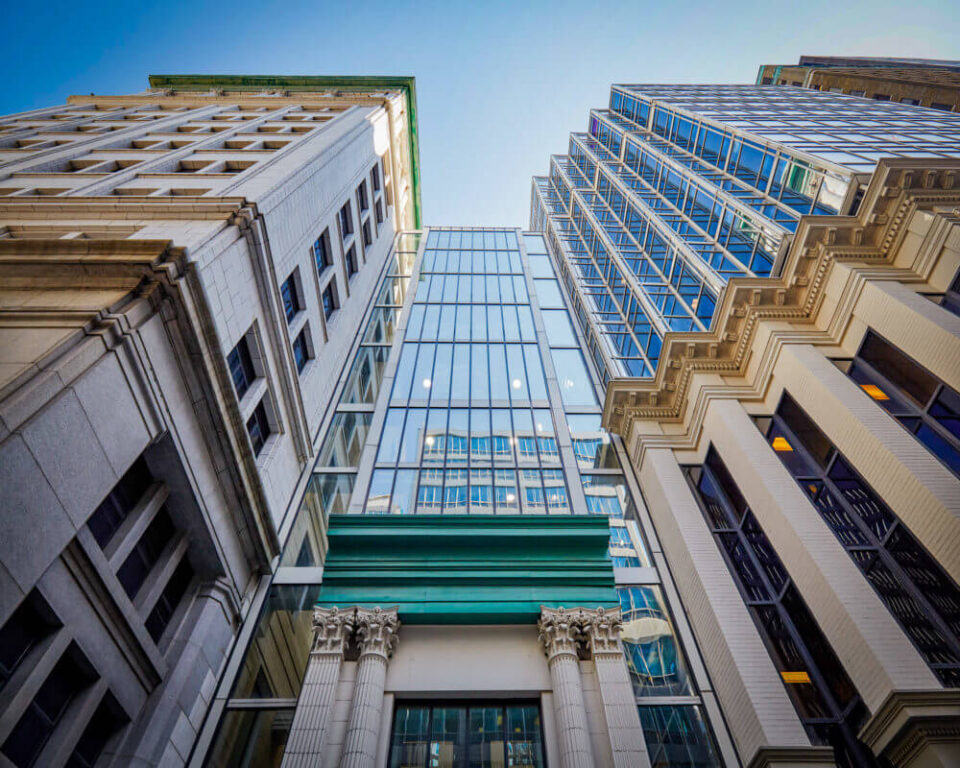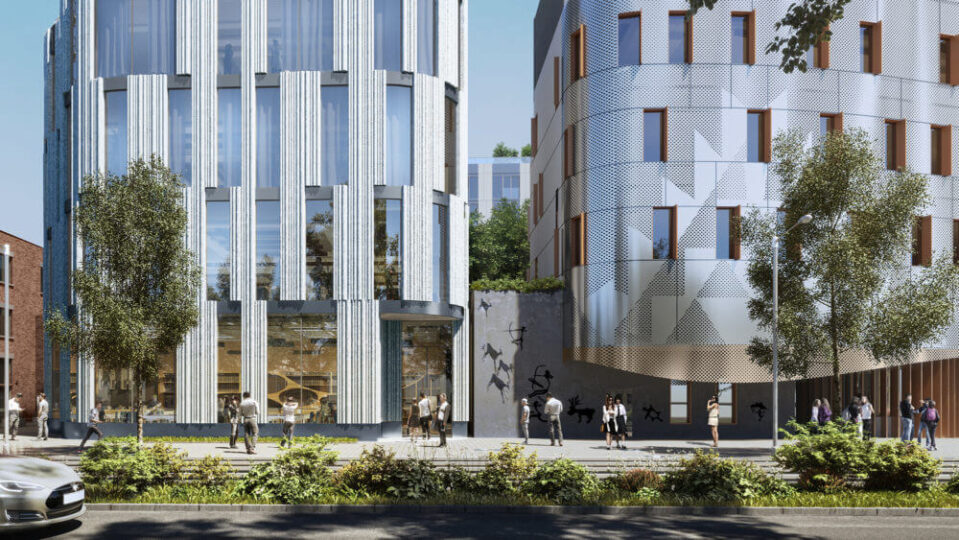The Canada Green Building Council says all types of buildings need to be upgraded, retrofitted and decarbonized so the country can achieve its 2030 and 2050 climate targets.
The Canada Green Building Council vice-president Mark Hutchinson said CIB’s retrofit initiative is spurring a lot of interest because it’s a program built specifically around carbon emissions rather than energy efficiency. And it has aimed high by requiring participants to realize double-digit emissions reductions.
“It’s gotten a lot of attention because of that and because there are financial advantages for participating in the program,” he said in an interview.
Real estate firm Dream was one of the most recent companies to turn to the CIB for help to realize its decarbonization aspirations.
CIB’s investment of $136.6 million is catalyzing the decarbonization and modernization of 19 office and residential buildings across Dream’s portfolio in Ontario and Saskatchewan, creating about 1,500 jobs and healthy workplaces for 15,000 office employees.
“The decarbonization and modernization of our assets is an integral part of Dream’s net zero transition. This investment will have a positive and lasting impact on communities and the environment,” said Michael Cooper, President and Chief Responsible Officer.
Contributions from CIB’s residential program, along with the Canada Mortgage and Housing Corp. MLI Select program is allowing Dream to decarbonize while also creating and preserving 189 affordable residential units, Cooper added.
“This also provided proof of concept for a partnership model which ultimately demonstrated how through valuable government, private sector, and not-for-profit (Dream Community Foundation) partnerships we can address issues of climate change, affordability and inclusivity.”
The Fairmont Royal York is CIB’s latest Canadian building retrofit investment. The others include Avenue Living, Efficiency Capital, SOFIAC, Algoma Steel, University of Toronto and Toronto Western Hospital.
“The CIB’s customized investment solution will help decarbonize a historic Canadian landmark, paving the way forward for future green retrofits within the hospitality sector,” said CIB chief executive Ehren Cory.
Hotel guests who increasingly want environmentally focused accommodations will welcome the upgrades even though they will largely be relegated to the guts of the 1929 structure. Steam-based systems will be replaced to curb the use of fossil fuels for heating, ventilation, air conditioning, hot water and hotel operations.
Hotel owner KingSett Capital previously obtained Zero Carbon Certification for Scotia Plaza in Toronto, which in 2020 was the largest Zero Carbon office building in Canada.
KingSett CEO Jon Love said the ambitious scale of the Royal York Hotel project required a significant capital investment that was only made possible with CIB support.
“There’s no gift here. There’s no free lunch. This is hardcore business on both sides of the table and I think it’s generating a really constructive outcome for Canada,” he said in a Canadian Club panel discussion.
Although hotels are interested in cutting carbon emissions, COVID-19 struck a brutal blow to the sector, says Rebecca Bartlett-Jones, business development director for GreenKey Global, a sustainability certification program owned by the Hotel Association of Canada.
“I believe there is a wish and a need to do this, they’re just being held back by money and not knowing really who to turn to.”
But Bartlett-Jones said the Royal York proceeding with this change will “definitely make a difference” as will the hotel association’s certification program.
“I believe in the next year or so it’s going to be top of mind for all hotels, so I’m really encouraged.”




